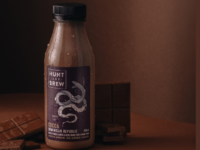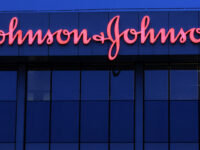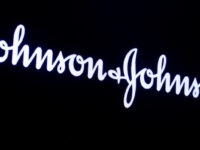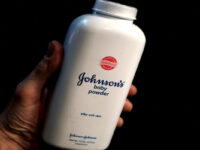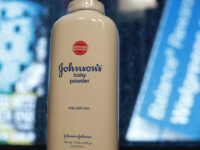 A report released by Reuters on Friday alleges that Johnson & Johnson (J&J) knew about trace amounts of asbestos in its baby powder product from as early as 1971.
A report released by Reuters on Friday alleges that Johnson & Johnson (J&J) knew about trace amounts of asbestos in its baby powder product from as early as 1971.
Reuters analysis of internal documents, company memos and other confidential documents found that from at least 1971 to the early 2000s tests for asbestos proved positive.
According to the Reuters report, “the company’s raw talc and finished powders sometimes tested positive for small amounts of asbestos, and that company executives, mine managers, scientists, doctors and lawyers fretted over the problem and how to address it while failing to disclose it to regulators or the public.”
The documents also showed that the company successfully influenced U.S. regulators’ plans to limit asbestos in cosmetic talc products as well as scientific research on the effects of talc.
The consumer goods giant has had a number of lawsuits in the past claim that its Baby Powder and Shower to Shower products caused ovarian cancer, and in some cases, death. Reuters said that today there are roughly 11,700 plaintiffs stating that J&J products caused their cancers.
Over the course of these allegations, J&J has maintained that its products are safe to use.
A small portion of the documents investigated by Reuters have been produced at trial and cited in media reports but most were shielded from public view by court orders that allowed the company to conceal documents it designated as confidential.
In a response to the findings, J&J vp of global media relations, Ernie Knewitz, said, “Plaintiffs’ attorneys out for personal financial gain are distorting historical documents and intentionally creating confusion in the courtroom and in the media. This is all a calculated attempt to distract from the fact that thousands of independent tests prove our talc does not contain asbestos or cause cancer. Any suggestion that Johnson & Johnson knew or hid information about the safety of talc is false.”
Johnson & Johnson shares slipped a further 2.9 per cent on Monday as news of the report spread.
Inside FMCG contact Johnson & Johnson for comment has not yet received a response.



